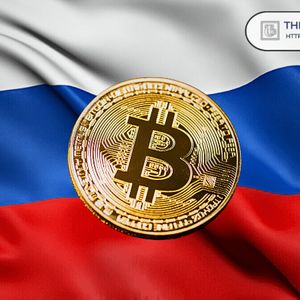Market Pulse
Singapore, a leading global financial hub, has announced a significant delay in the implementation of new prudential standards for banks engaging with crypto assets. The Monetary Authority of Singapore (MAS) has pushed back the enforcement of these crucial rules until 2027, a decision that has ripple effects across the digital asset landscape and raises questions about the pace of institutional crypto adoption in one of Asia’s most progressive jurisdictions. This postponement offers both a reprieve and a period of prolonged uncertainty for financial institutions eager to integrate crypto into their operations.
The Regulatory Landscape Shift
The MAS’s decision means that banks in Singapore will operate under the existing, less stringent guidelines regarding their exposure to cryptocurrencies for at least another year. Originally, the MAS intended to align its framework with the international standards proposed by the Basel Committee on Banking Supervision (BCBS), which outlines strict capital and risk management requirements for banks holding unbacked crypto assets. These BCBS standards propose a conservative 1,250% risk weight for such holdings, effectively making it capital-intensive for banks to hold volatile digital assets directly on their balance sheets. The delay suggests a re-evaluation or a need for more time to develop a tailored approach that balances innovation with financial stability.
Implications for Financial Institutions
For traditional financial institutions, the delay presents a mixed bag. On one hand, it grants them additional time to prepare for the eventual implementation of these robust prudential standards. This could involve developing more sophisticated risk management frameworks, investing in new technologies, or restructuring their digital asset strategies. On the other hand, the prolonged wait for definitive rules could deter some institutions from making significant commitments to the crypto space, preferring to operate in a clearer regulatory environment. Key implications include:
- Continued Uncertainty: Banks face an extended period without final clarity on capital requirements for crypto exposures.
- Strategic Re-evaluation: Firms may use this time to refine their approach to digital asset custody, trading, and investment.
- Impact on Innovation: Some argue that prolonged uncertainty can stifle innovation, as banks hesitate to launch new crypto-related services.
- Focus on Stablecoins and Tokenized Assets: The delay might encourage institutions to further explore less volatile tokenized assets or stablecoin-related services, where regulatory paths might be perceived as less ambiguous.
- Influence on Ethereum: Specifically, how banks treat assets like Ethereum (ETH) could be influenced, particularly if the delay leads to more nuanced classification for different types of digital assets.
Singapore’s Stance as a Crypto Hub
Singapore has long positioned itself as a forward-thinking financial hub, often lauded for its balanced approach to crypto regulation, aiming to foster innovation while mitigating risks. This delay, while seemingly cautious, could be interpreted in various ways. It might signal a meticulous approach by the MAS, emphasizing a thorough understanding and development of appropriate frameworks rather than a hasty implementation. Alternatively, it could suggest underlying complexities in adapting global standards to Singapore’s unique market dynamics or a desire to observe how other major jurisdictions proceed before cementing its own rules. The decision underscores the evolving nature of crypto regulation globally and the challenges faced by regulators in keeping pace with rapid technological advancements.
Conclusion
The Monetary Authority of Singapore’s decision to defer new crypto prudential standards for banks until 2027 marks a pivotal moment for institutional engagement with digital assets in the region. While providing banks more breathing room to adapt, it also extends the period of regulatory uncertainty, potentially impacting the speed and scale of crypto adoption within traditional finance. The global financial community will be closely watching how Singapore leverages this additional time to craft a regulatory framework that continues to support its reputation as a leading FinTech hub while ensuring financial stability in the rapidly evolving world of digital currencies.
Pros (Bullish Points)
- Banks gain more time to develop robust internal systems and strategies for crypto engagement.
- Opportunity for MAS to refine and potentially implement more nuanced or less restrictive rules.
Cons (Bearish Points)
- Prolongs regulatory uncertainty, potentially hindering institutional investment decisions.
- Could be perceived as a slowdown in Singapore's progressive stance on crypto integration by some.



